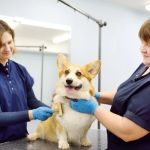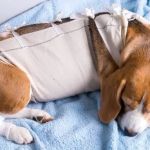This page is not available
Go back to the homepage »Page Not Found
Trending Blog Articles
Beginner's Guide to Pet Fitness: Safe, Fun & Healthy Routines for All PetsBest Practices for Senior Cat Diet and Nutrition | Brothers PetsBest Supplements to Support Healthy Aging in CatsHow to Prevent and Treat Parasites in PetsThe Ultimate Guide to Pet Behavior: Understanding Your Pet’s Actions and NeedsHow to Reduce Stress for Cats During TravelWhat Every Pet Owner Should Know About Puppies & Kittens in the USHow to Safely Administer Medications to Your Pet: Expert Tips & TricksHow to Keep Your Cat Entertained During Rainy Days: Tips for U.S. Pet OwnersHow to Recognize and Treat Pet Coughing and Respiratory IssuesHow to Help Your Pet Cope with Separation from YouExpert Advice on Pet Travel: Tips for a Safe & Smooth JourneyHow to Prevent and Treat Pet Constipation – Expert Tips for Your Pet's HealthHow to Spot and Treat Digestive Problems in Cats: A Guide for Pet OwnersPreparing Your Pet for a New Baby in the Home: Tips for a Smooth TransitionUnderstanding Pet Breeds and Their Unique Health ConsiderationsUnderstanding Signs of Urinary Issues in Dogs – Causes, Treatments, and PreventionBest Practices for Crate Training Your PuppyBest Practices for Dog Grooming Between Vet Visits: Essential Tips for Pet CareTop 7 Tips for Pet Training: Build Trust, Consistency, and Good Behavior
Categories
Top Visited Sites
 Petco4.0 (792 reviews)
Petco4.0 (792 reviews) Hudson Veterinary Clinic4.0 (634 reviews)
Hudson Veterinary Clinic4.0 (634 reviews) Modern Animal4.0 (67 reviews)
Modern Animal4.0 (67 reviews) McEwen Animal Clinic4.0 (144 reviews)
McEwen Animal Clinic4.0 (144 reviews) Jackson Square Animal Clinic4.0 (222 reviews)
Jackson Square Animal Clinic4.0 (222 reviews) Plaza Pet Hospital4.0 (52 reviews)
Plaza Pet Hospital4.0 (52 reviews)Top Pet Stores Searches
dr charles loops dvmvet lexington vahanover petcoarchvet santa clarapuppy dreams denton photoscaesar's tropical fish santa rosaprospect park vet clinicannabessacookreptile store in berkeleymarsh veterinary clinicwestbury vet clinickessen veterinary clinicpetco pomonapetco in washingtoneast sacramento veterinary centernorth oatlands animal hospitalporter ranch petcothorndale animal hospitalshrewsbury veterinary cliniccuttle fish and corals
Trending Pet Health & Care Blog Posts
 Best Practices for Dog Grooming Between Vet Visits: Essential Tips for Pet Care
Best Practices for Dog Grooming Between Vet Visits: Essential Tips for Pet Care How to Support a Dog Recovering from Surgery with Care and Comfort
How to Support a Dog Recovering from Surgery with Care and Comfort How to Recognize and Treat Hypothermia in Pets: A Guide for Pet Owners
How to Recognize and Treat Hypothermia in Pets: A Guide for Pet Owners Travel Tips for Pets: Keeping Dogs and Cats Comfortable
Travel Tips for Pets: Keeping Dogs and Cats Comfortable How to Keep Your Pet’s Coat Healthy and Beautiful: Tips and Tricks
How to Keep Your Pet’s Coat Healthy and Beautiful: Tips and Tricks Top 14 Tips for Pet Health | Expert Advice for Happier, Healthier Pets
Top 14 Tips for Pet Health | Expert Advice for Happier, Healthier Pets